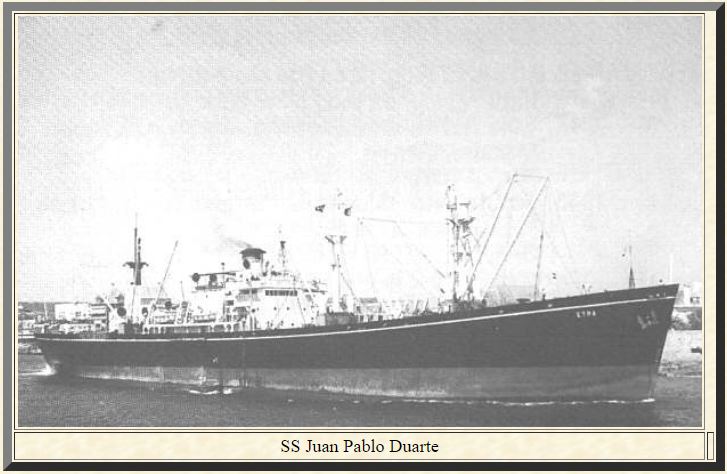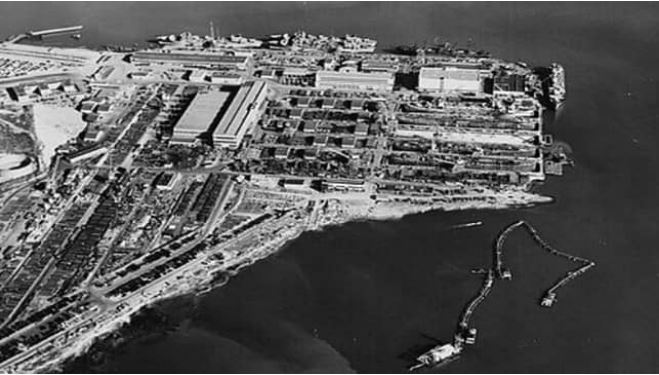Difference between revisions of "SS Juan Pablo Duarte"
From Our Contribution
| Line 31: | Line 31: | ||
The Kaiser Shipyards in Richmond, California, were owned by Henry J. Kaiser and managed by the Permanente Metals Corporation. The Richmond Kaiser Shipyards built 747 ships in four years during World War II, 519 of which were Liberty ships. | The Kaiser Shipyards in Richmond, California, were owned by Henry J. Kaiser and managed by the Permanente Metals Corporation. The Richmond Kaiser Shipyards built 747 ships in four years during World War II, 519 of which were Liberty ships. | ||
| − | SS Juan Pablo Duarte | + | |
| + | ''SS Juan Pablo Duarte'' was laid down on 5 Feb 1944, as Hull no 2757, and launched on 23 Feb 1944. On completion it served in the Pacific theatre of operations. It is not known if it remained in the general cargo configuration or if it was one of the 247 Liberty Ships converted as troop ships. If so, The conversion was relatively simple, with five-tier bunks being added, along with additional facilities (galleys and sanitary facilities). To provide an essential minimum of protection in the event of an emergency, additional lifeboats, liferafts and lifejackets were provided, people were generally not accommodated below the waterline and two emergency escapes were installed from each compartment. | ||
| + | |||
In 1947 she was sold. | In 1947 she was sold. | ||
Latest revision as of 15:05, 2 October 2023
Remarks
The Kaiser Shipyards in Richmond, California, were owned by Henry J. Kaiser and managed by the Permanente Metals Corporation. The Richmond Kaiser Shipyards built 747 ships in four years during World War II, 519 of which were Liberty ships.
SS Juan Pablo Duarte was laid down on 5 Feb 1944, as Hull no 2757, and launched on 23 Feb 1944. On completion it served in the Pacific theatre of operations. It is not known if it remained in the general cargo configuration or if it was one of the 247 Liberty Ships converted as troop ships. If so, The conversion was relatively simple, with five-tier bunks being added, along with additional facilities (galleys and sanitary facilities). To provide an essential minimum of protection in the event of an emergency, additional lifeboats, liferafts and lifejackets were provided, people were generally not accommodated below the waterline and two emergency escapes were installed from each compartment.
In 1947 she was sold.

